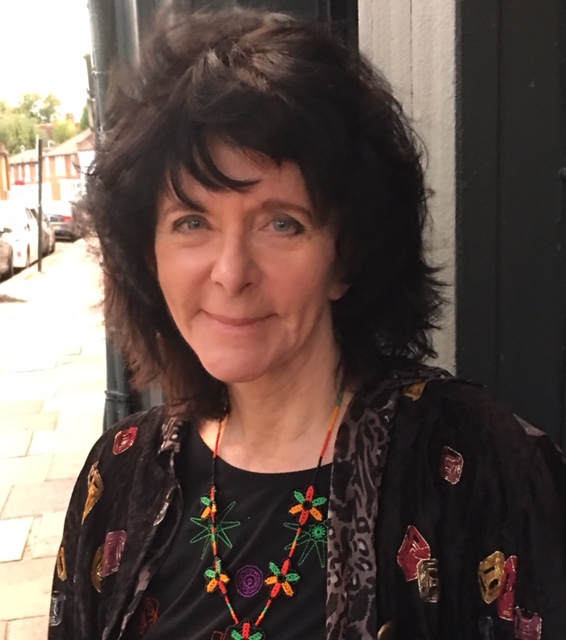
Ruth Padel
Education Interview, The Independent, January 2007
Interview in Independent, Education Supplement 18th January 2007
Interview by Jonathan Sale
AN EDUCATION: RUTH PADEL, WRITER
Ruth Padel is the great-great-grand-daughter of Charles Darwin and winner of the National Poetry Competition. She has been the resident poet at the Proms and the Chair of the Poetry Society. “The Poem and the Journey”, published today [JAN25] grew out of her former column on poetry in the Independent on Sunday. Her non-fiction includes “Tigers in Red Weather”, now out in paperback.
*********
I don’t know what my first school was – I was only three – but it must have been near 10 Wimpole Street, where I was born in the attic. I had a teacher called Mrs Cornflake. Later we moved to Highgate where my school was Byron House. I remember being away when the class was learning multiple addition and the teacher explained it by doing a sum and saying “Carry three” – so I kept “carrying three” whatever the number.
I enjoyed singing and learning sea shanties. My mother played the clarinet, my father played the cello and they met at music camp. My father’s grandfather was a concert pianist from Leipzig, taught by a pupil of Beethoven. His name Padel is Wendish: Wends live in South East Germany and many were gypsy musicians. The first money I ever earned was playing viola in Westminster Abbey. From very early on I learnt chunks of poems by heart from The Book of a Thousand Poems – but only the animal section, such as Blake’s Tyger, Tyger. I knew The Jungle Books by heart, too. My mother was a biologist and her old children’s books were full of wild animals, with the naturalist as hero.
I went to North London Collegiate, a direct grant girls school in Edgware, where Miss Wainforth used to set us English essays and every week I would wait for last period on Thursday to get them back. Mine would be marked “A – but please write an essay next time!” I always did short stories.
I enjoyed the Sixth Form and the “Remove” (seventh term Oxbridge entrance) when you were allowed to wear your ordinary clothes. At A-level I did Latin, Greek, Ancient History and English, then got a Classics scholarship to Lady Margaret Hall, Oxford. My father had been a Classics teacher before becoming a psychoanalyst and taught me Greek when I was thirteen. Teaching runs in the family; I happen to be quite good at showing how to read a poem but at university English literature was a delight on the side.
I was in Oxford for fifteen years, on and off. Greats [Classics] is a four-year course. After two years I got a First in “Mods”, the language and literature part of the course. You had to do Philosophy, then, but I hated it. I got a D in Logic; its “Truth Tables” seemed as random and meaningless as “carry three” at school. In my Finals I was viva-ed several times. In one exam I’d suddenly seen a way of arguing against a well-known paper by my beloved tutor George Forrest, but in the “viva” one of the examiner, an antagonist of his, asked me to develop my argument against him and I refused. I got a 2.1.
Fortunately by this time I already had funding for my Ph.D on the idea of self in Greek Tragedy. As a Research Fellow I became the first woman Fellow of Wadham; they changed the statutes for me. I was Lecturer at Corpus Christi and Research Fellow at Wolfson, lived with the sculptor Michael Black, who carved the emperors’ heads on the Sheldonian Theatre, got a travelling scholarship and lived in Crete, where I fell in love with a Cretan and discovered a new bit of the Royal Road, at Knossos. Later I married a philosopher, Professor of Ancient Philosophy at Cambridge.
I never saw myself as an academic,.I loved teaching but hated the administration which increased vastly in the Thatcher years, and got out – to write poetry. I am now writing a book about king cobras. In case you ever need to know, their toxin works by paralysing the nerves and the first sign it’s working is that you can’t raise your eyelids.